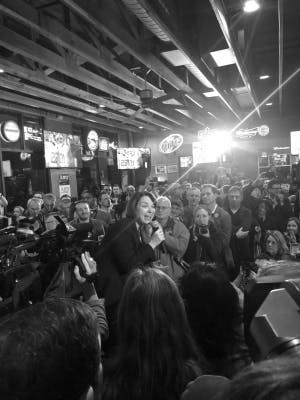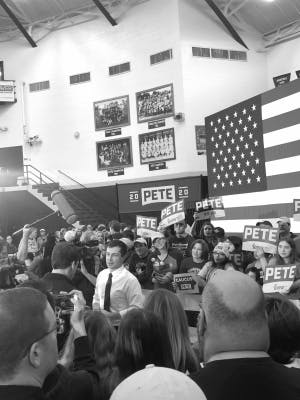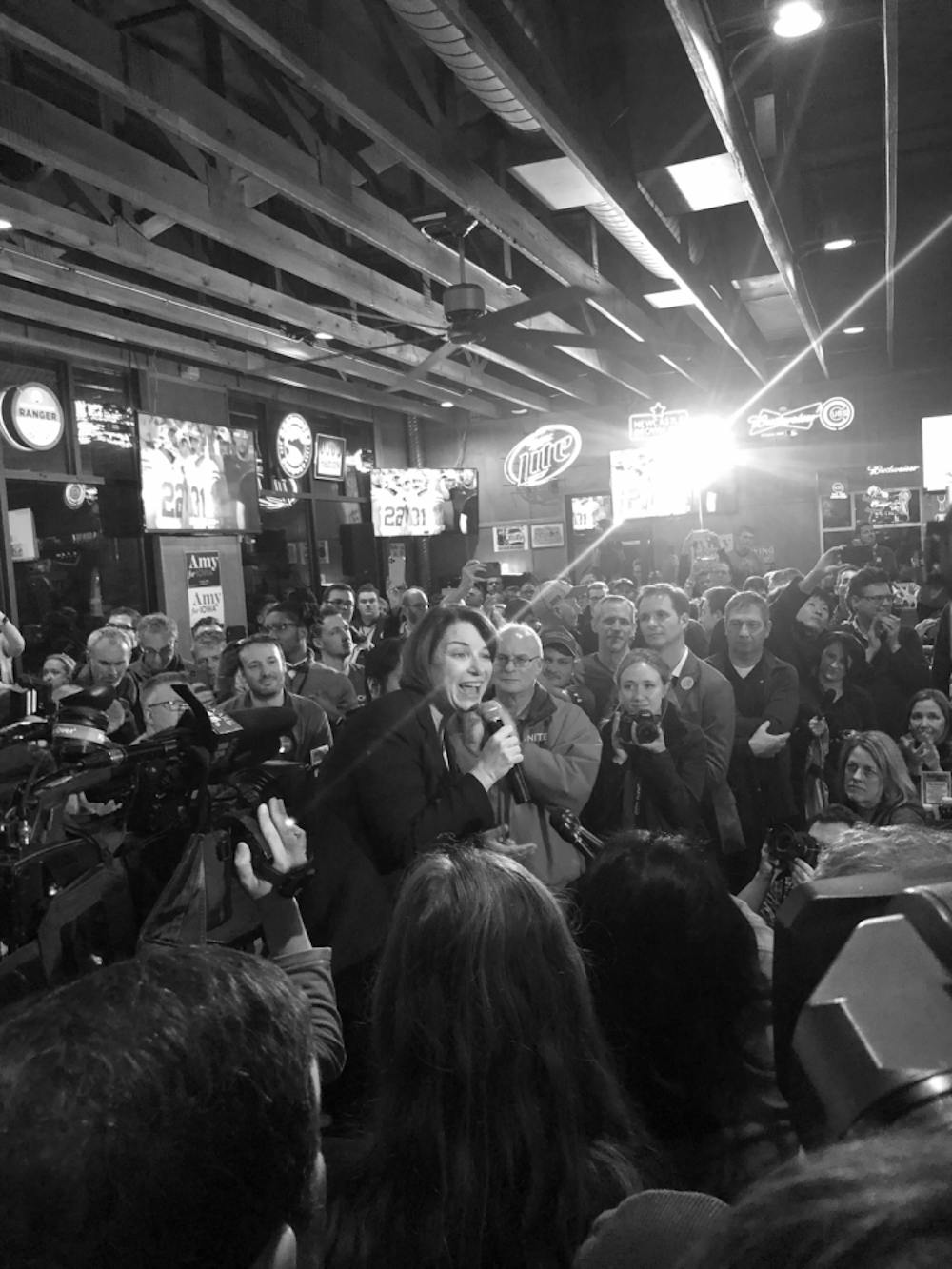On Feb. 3 at 6:00 p.m., my family and I joined some of our neighbors to walk a few blocks to our caucus location — a nearby school auditorium. In the following hour, hundreds more of our neighbors filtered in, some registering to vote for the first time, others following a routine practiced many times before.
The Iowa Caucuses are an inherently messy process and one rife with criticism. On caucus night, anywhere from a dozen to hundreds of people gather at nearly 1700 different locations across the state, varying from small town church basements to large high school gymnasiums. Then, over an hour plus process, express their vote preference by standing in a corner and literally counting heads. While coming to a head one February night, the process really begins two years prior as presidential hopefuls crisscross the state from coffee shops to cornfields visiting most, if not all, 99 counties. While this process seems absurd to anyone not from Iowa, it benefits both candidates running for president and voters. Candidates have to actually do the work of talking to voters and discussing their policy ideas, while voters are forced to think deeply about their vote and engage in conversations about who is best suited to be president. And so, while messy, it is a process that Iowans take incredibly seriously.

Caucus night begins with statements from elected officials, followed by speeches from the precinct chairs for six of the candidates, encouraging voters to stand in their corner. Then, in a manner at once chaotic and organized, we did just that — stood in a corner with a group of neighbors expressing support for our chosen candidate.
The caucus system in Iowa has what is called a “viability threshold”. In order to receive delegates in a certain precinct, each candidate needs support from 15% of the caucus-goers. If a candidate fails to meet this number, there is a realignment period in which voters can either attempt to persuade voters from another unviable group to come join their corner (in order to reach the 15% threshold), join a viable candidate’s group or remain uncommitted.
Following the first alignment in our precinct, Des Moines 59, the only viable candidates were Pete Buttigieg, Elizabeth Warren and Bernie Sanders. As a result, the supporters of Amy Klobuchar, Joe Biden, and Andrew Yang (and a handful that supported other candidates) had to either convince others to come join their corner or had to move to a viable candidate.
Caucuses are one of the rare occasions, save jury deliberations, in which a body of people are asked to reach political decisions in a collective nature. These conversations between neighbors, however chaotic they might seem to the news-viewer at home, reflect the pure, democratic essence of the caucus.
At my caucus site this materialized with initial talk of Biden and Klobuchar supporters joining forces. However, there was limited interest in that plan and once it was clear that both candidates would not reach the 77-person threshold necessary to be viable, precinct captains from the three viable candidates came over to make personal pitches. Ultimately, most moved to support Buttigieg, giving him the narrow popular vote win in our precinct, with Sanders and Warren following close behind.
This result is representative of the final results across the state: Buttigieg narrowly won with Sanders close behind, and Warren a more distant third. Yet, as the results took longer than usual to be reported (due to a faulty reporting app and the fact that for the first time three times as much voter breakdown was reported) news coverage turned to expressing doubt at the organizing of this years caucus and, more broadly, Iowa’s role as the first in the nation state.

Just like complaints about caucuses’ chaotic nature, there have always been questions about whether Iowa should play such an important role in the nominating process. There are complaints about Iowa being unrepresentative of the nation and the democratic party electorate (too white, too rural), confusion about the caucus process and concerns about the ease of participation, particularly for minorities, the elderly, and those with service jobs.
Complaints about Iowa going first are not unfair, still, they often do not show the whole picture. As far as representation goes, an NPR study in 2016 found that Iowa was the 16th most representative state in the nation—far better than the other early nominating state New Hampshire which ranked 49th or even South Carolina at 32nd. Furthermore, while Iowa is not as diverse as the nation as a whole, that has not stopped Iowans from frequently selecting diverse candidates. Iowa is widely considered to have been imperative in the rise of Barack Obama, the first African American nominee In 2016, Hillary Clinton, the first female major party nominee won the caucuses. This year, the first openly gay major-party candidate walked away with the majority of the delegates.
It is no surprise that Iowa allows diverse, unknown candidates to succeed. A longstanding political tradition of voters thoroughly vetting the candidates by meeting multiple candidates, often multiple times, and TV and radio airwaves that are vastly more affordable than most states help to level the playing field. That way, such as in 2008, a first-term senator from Illinois can gain traction and beat more high-profile figures, such as a former first lady and senator as well as the former vice presidential nominee. While there certainly are issues with the caucuses, a profound sense of democracy emerges across the state as voters collectively spend the evening talking, listening and engaging, in this uniquely Iowan tradition. Sure, the Iowa Caucuses are messy, but so is democracy.
Abbott LaPrade is a member of the class of 2021.
Democracy is messy, so are the Iowa Caucuses

COURTESY PHOTO
COURTESY PHOTO
Comments



